In June, 37 Basque American youth traveled to the Basque Country to participate in a new exchange program that some of them called “life-changing.”
Ateak Ireki, which means Open Doors, was a three-week program that placed the students from all over the U.S. in homes of families who speak the Basque language in the Goierri region in Gipuzkoa from June 24 to July 16.
Ten of the students who participated in Ateak Ireki reunited recently at the Chino Basque Festival in California, where they spoke with Euskal Kazeta about what a wonderful experience it was for them.
“It was amazing,” said Elaia Echeverria, 21, of Salt Lake City, Utah. “It was like every Basque festival rolled into one. I learned more about our culture in the three weeks than probably in my 21 years. I hope I get to do it again. It’s everything you would want a Basque trip to be.”
During the three weeks, they attended the language school Maizpide in the town of Lazkao in the mornings, to take Basque language classes. In the afternoons, they were taken on excursions to learn more about the Basque Country, including a visit to the Basque Parliament in Vitoria-Gazteiz and the Tree of Gernika in Gernika, Bizkaia.
The students had to be between the ages of 16 and 25. They stayed with host families in Lazkao and surrounding towns. Ideally, the families had children the same age as the U.S. students.
“It was really a cool experience,” said Aingeru De Luz, 19, of Bakersfield, Calif. “My host family lived in a caserio (farmhouse) that was between Beasain and Lazkao. I would walk down into Lazkao every day to go to school. Most people were in apartment buildings, but I was at a functioning farmhouse with something going on 24-7. They had chickens and a garden.” He enjoyed spending time with the sons of his host family and their friends.
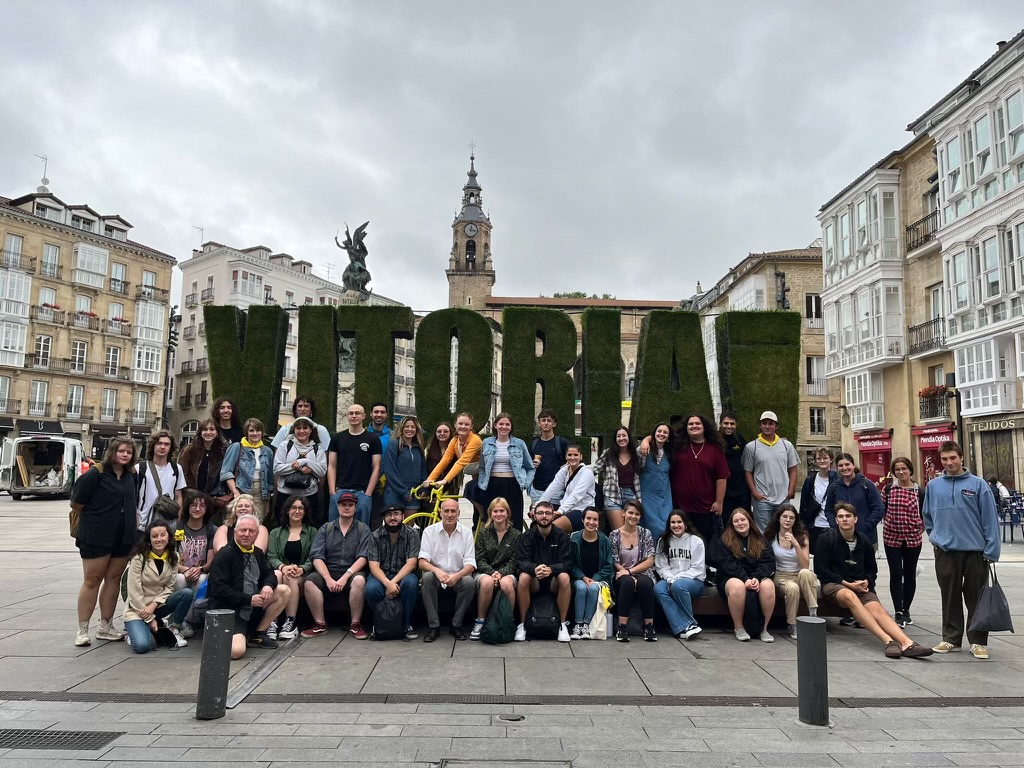
“It was almost life-changing for me,” said Xanti Echeverria, 18, of Salt Lake City, Utah, “since it was my first time going to the Basque Country.” Echeverria stayed in a sagardotegi – a Basque ciderhouse that his host family owned. One side was their house and the other side was a hotel and a restaurant where the cider was served.
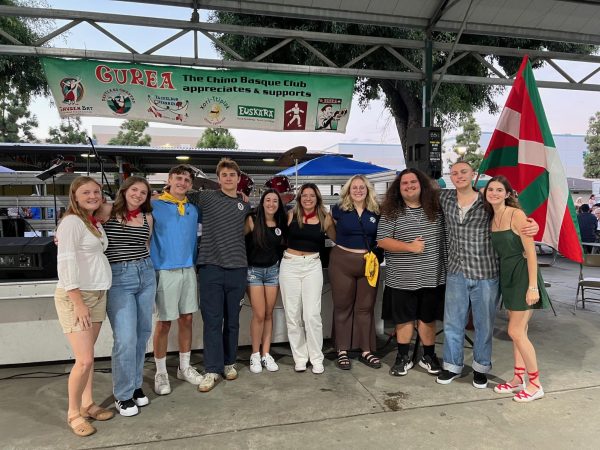
The opportunity to see modern-day Basque culture up close was eye-opening for most.
“All of my previous visits to the Basque Country had been just to my grandparents’ hometown in Ortzaize (Osses) in Baxe Navarre,” said Gavin Jean Baptiste Iribarren, 19, of Northern California. “If you know Baxe Navarre, it’s very rural, with a lot of farms, so getting to stay in what for Gipuzkoa was a small town, but was a big city for me, getting to see what was a more contemporary Basque life was very interesting for me.”
Iribarren’s host family had five children, “and I was basically just another one of their kids,” he said. “They were so welcoming to me and they showed me what it’s like to be a Basque person in the Basque Country today.”
The experience also strengthened friendships among the participants, which led them to organize the Chino reunion.
“It was a bonding experience for all of us,” said De Luz.
Michaela Betbeder, 19, of Visalia, said she knew many of the participants because they had been to Udaleku (U.S. Basque summer camp) together. “It was nice seeing everyone, ‘cause I hadn’t seen them in three years. It was different from going with your family.”
Experiencing the cultural differences and similarities was educational. The youth also made strong bonds with their host families.
“It was just me and my host mom and she told me to call her Iseba (aunt) by day three,” said Elaia Echeverria.”I still text her, we still communicate. It was really cool to get to know someone who actually lives there. This really helped me see those cultural differences. And more importantly how we are completely alike and how we share these things. It was the first time that someone knew how to pronounce my name. It was awesome.
“Being there with a bunch of other Basque Americans, that’s the most Basque and the most American I’ve ever felt,” said Mikyla Petrissans, 19, of Chino, Calif. “I never really understood how being Basque American was different. I just considered myself Basque, but being Basque American is a separate thing entirely and being there really made it obvious.”
The project was a joint effort by three non-profit groups, the North American Basque Organizations, Batzen Kultur Elkartea and Goieki. It was initially planned to take place a couple of years ago, but because of the pandemic, it was postponed.
The website of the program notes that Ateak Ireki was inspired by an exchange program that took place in the 1970s in which many Basque Americans from Boise went to the town of Onati in order to learn Euskera. That Boise-Onati exchange was also life-changing for many and led to many diaspora projects, friendships and even marriages. The program, sponsored by the Boise State University Basque Studies program took 100 students to the Basque Country over a seven-year period.
A significant aspect of the program was its emphasis on exposing the students to the Basque language, Euskera.
READ MORE STORIES ABOUT Learning Euskera
“it was just a really good excuse to go and to learn Euskera,” said Elaia Echeverria. “And to start to become Euskaldunak, because that’s such a big part of the culture.” Euskaldunak, the word for a Basque person, also means a Basque speaker.
“Learning Basque is a very difficult task, come to find,” said Iribarren, laughing. “I thought I knew quite a bit of Basque before going. I was very wrong. Learning grammar was very difficult. But it leaves me wanting to learn more.”

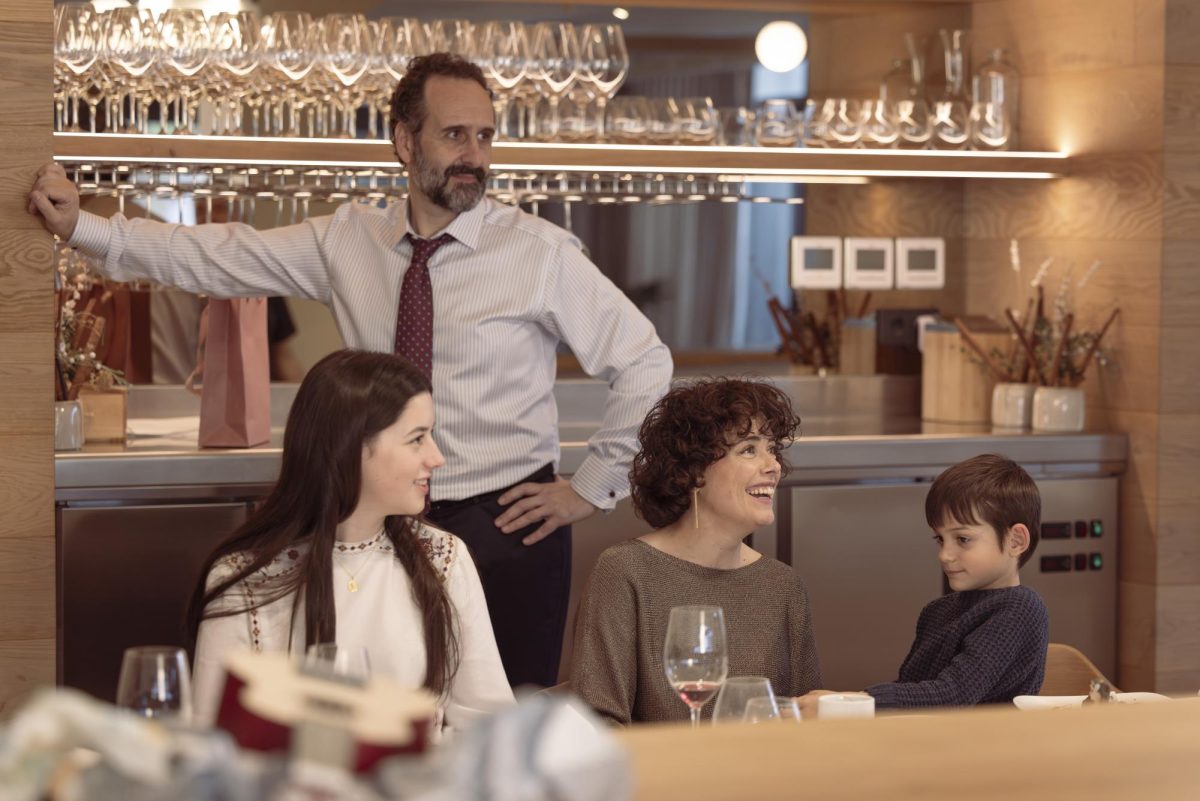
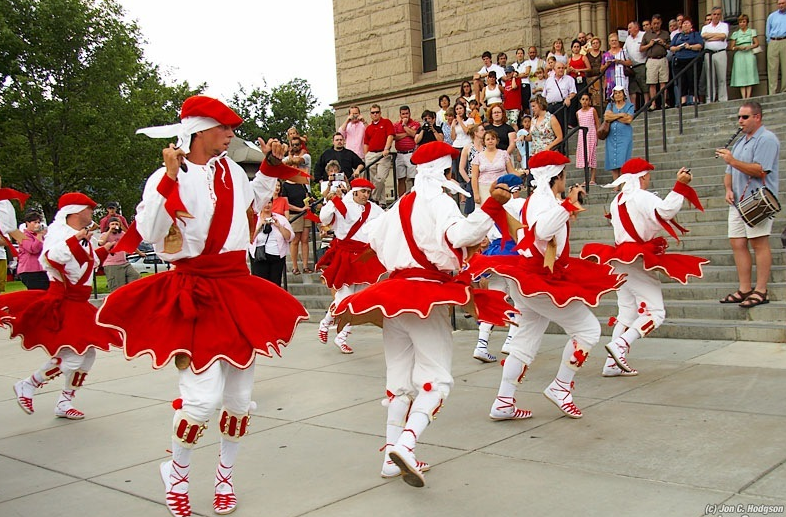
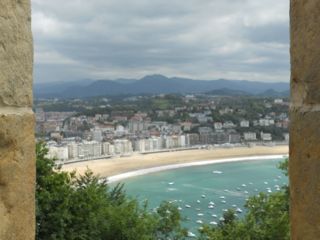
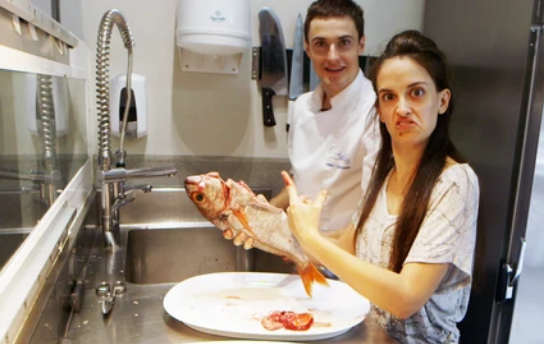
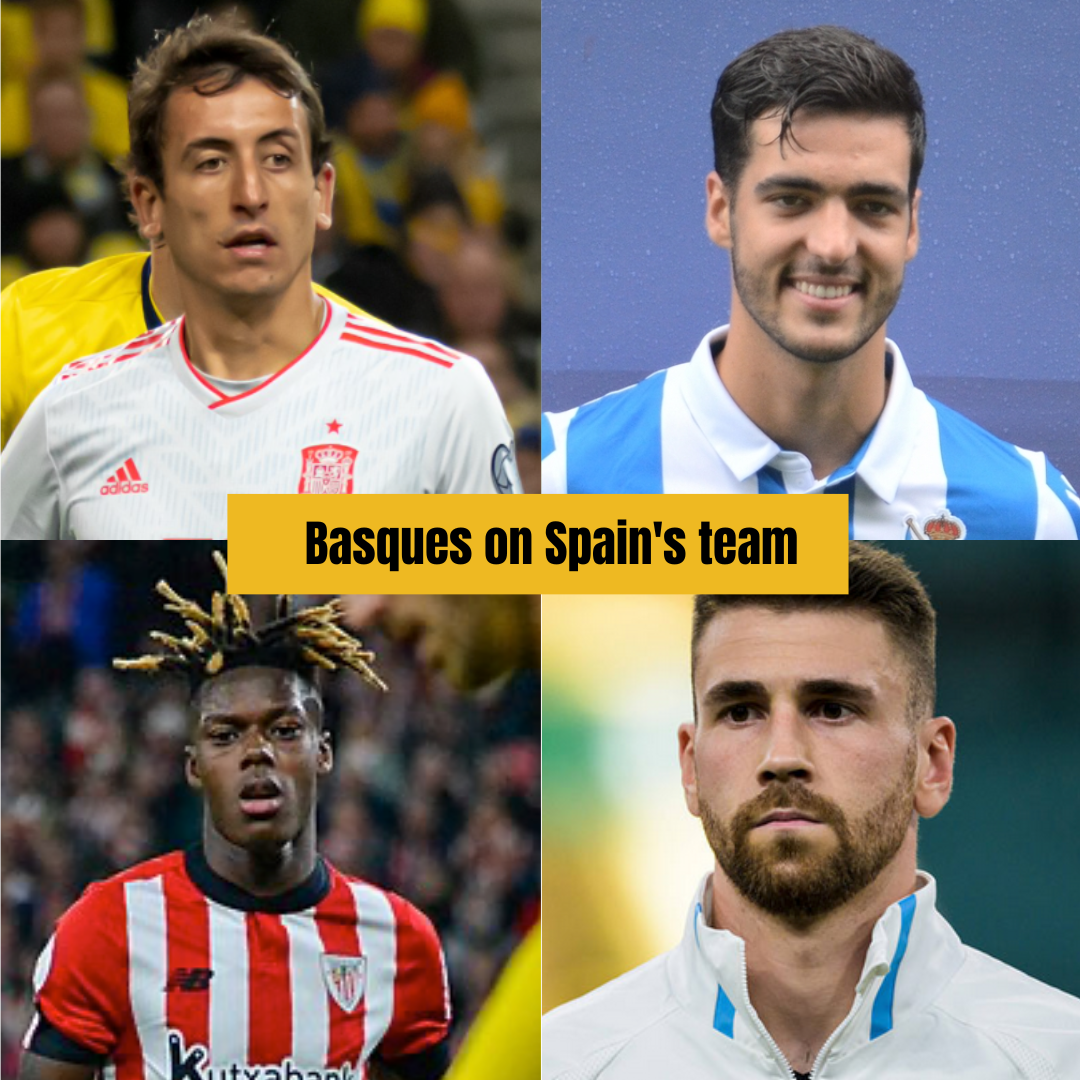
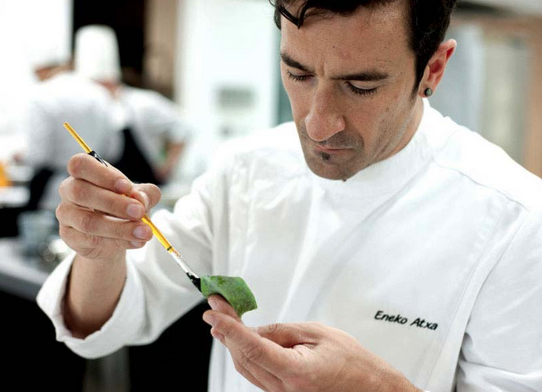
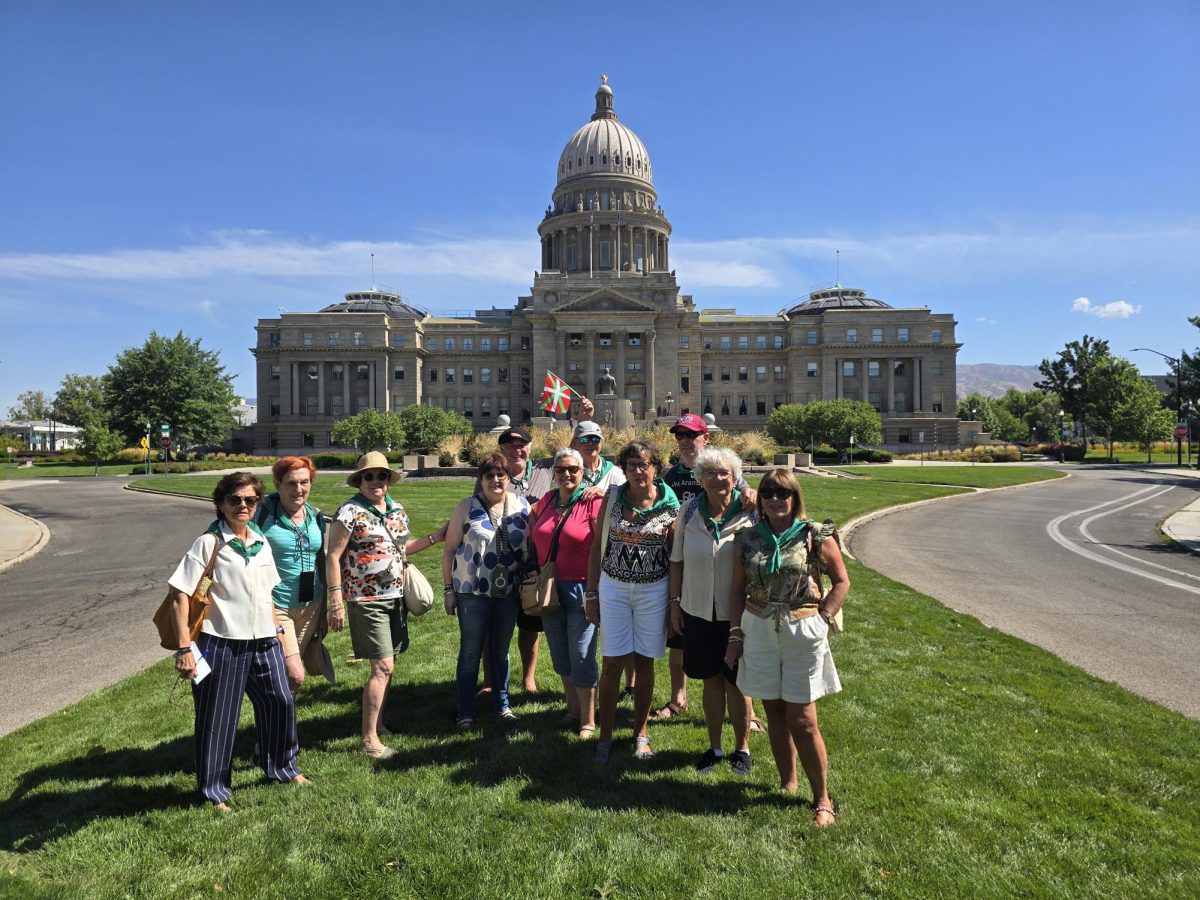
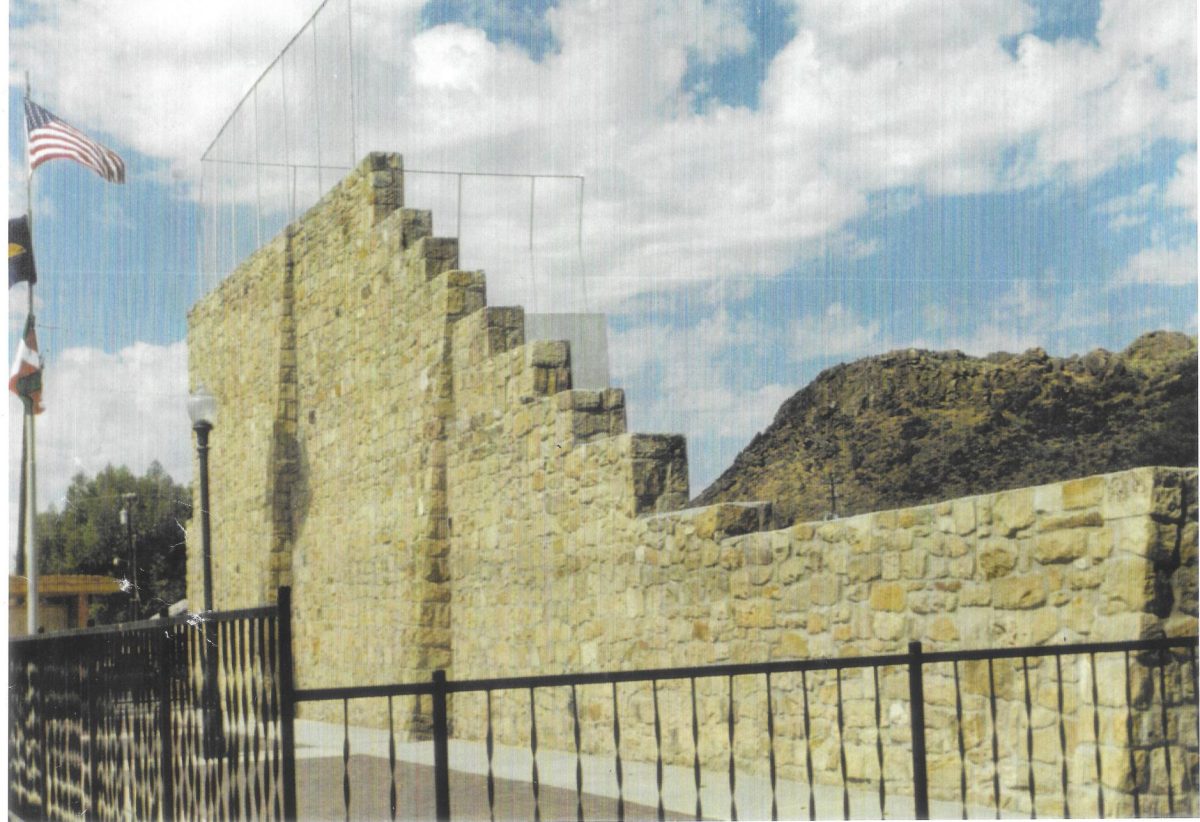
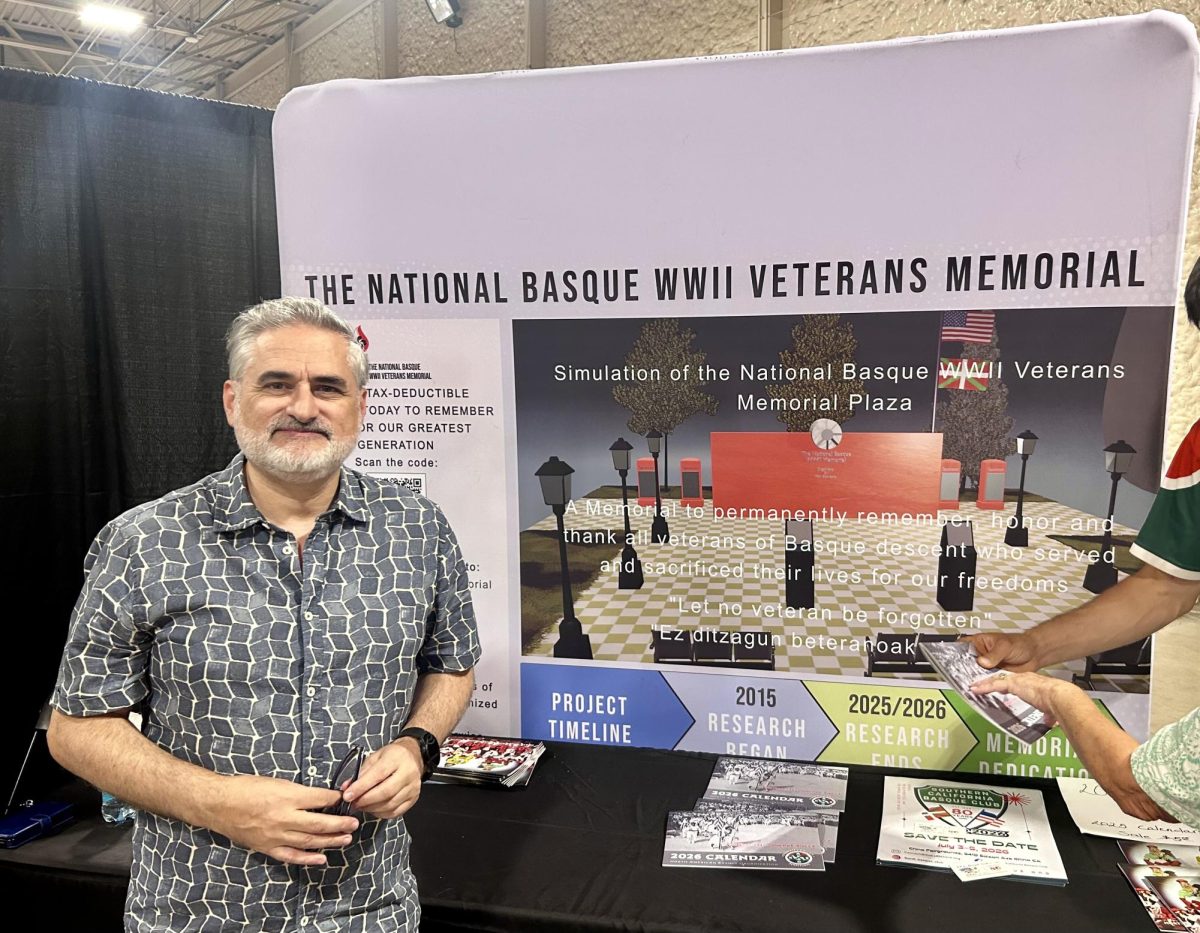
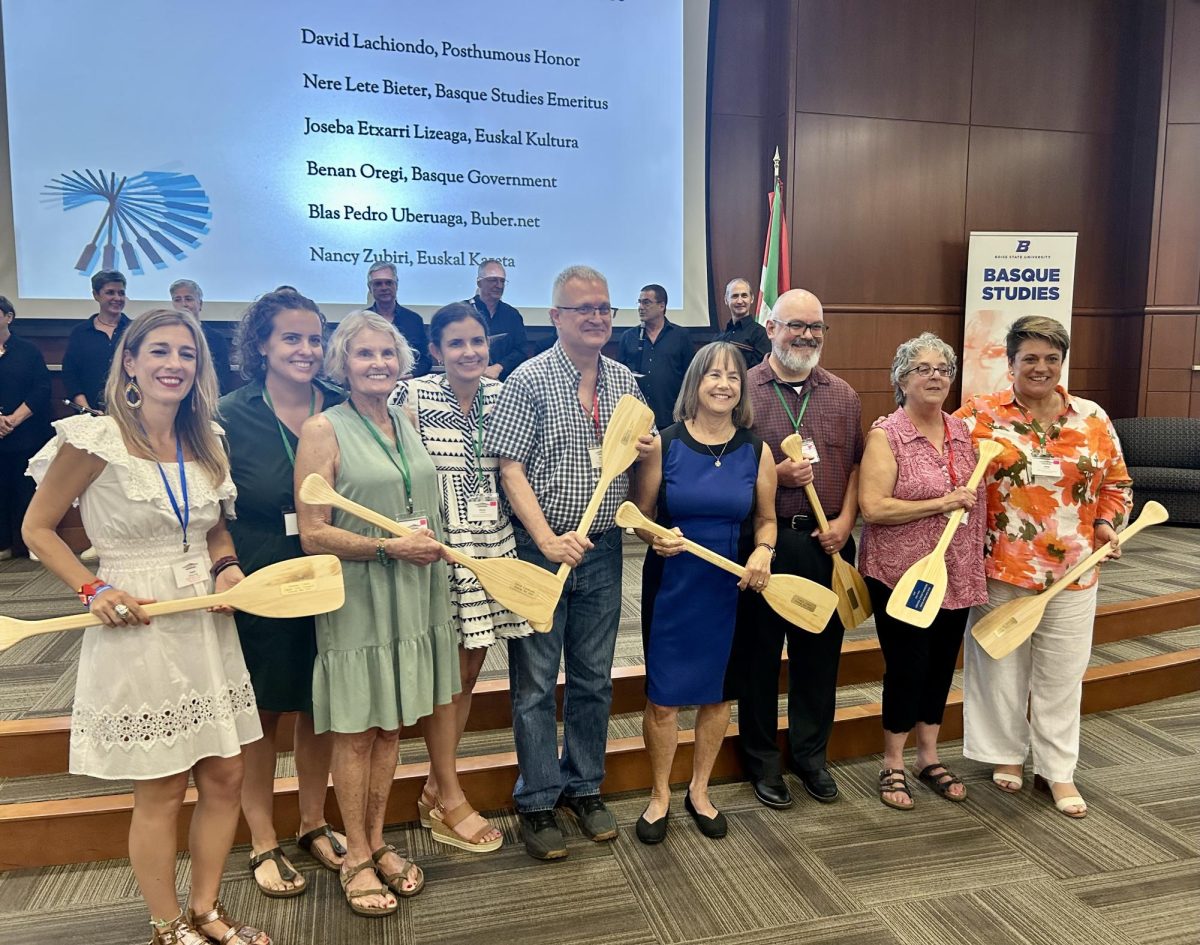
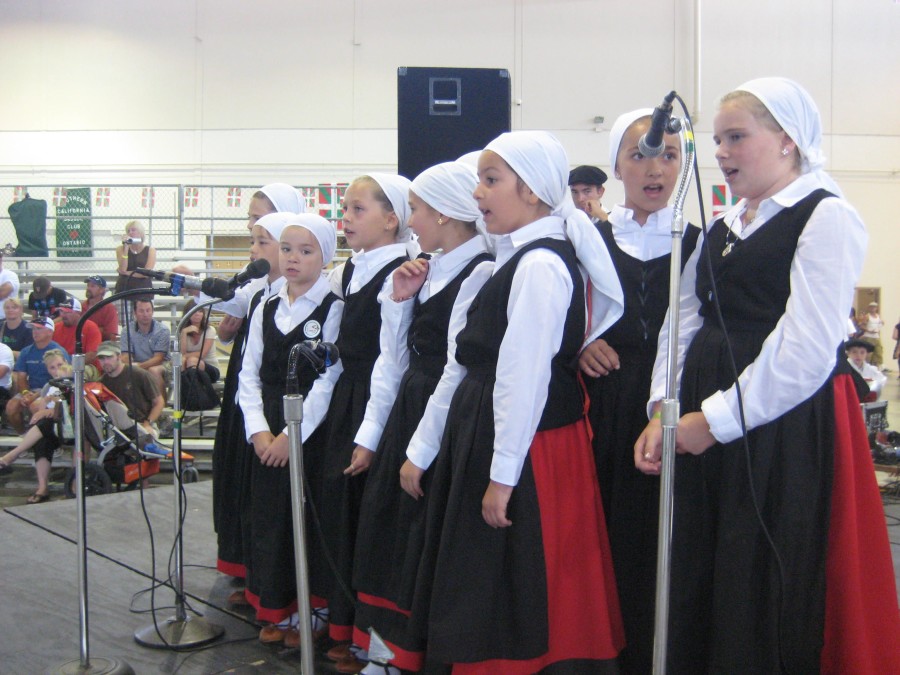

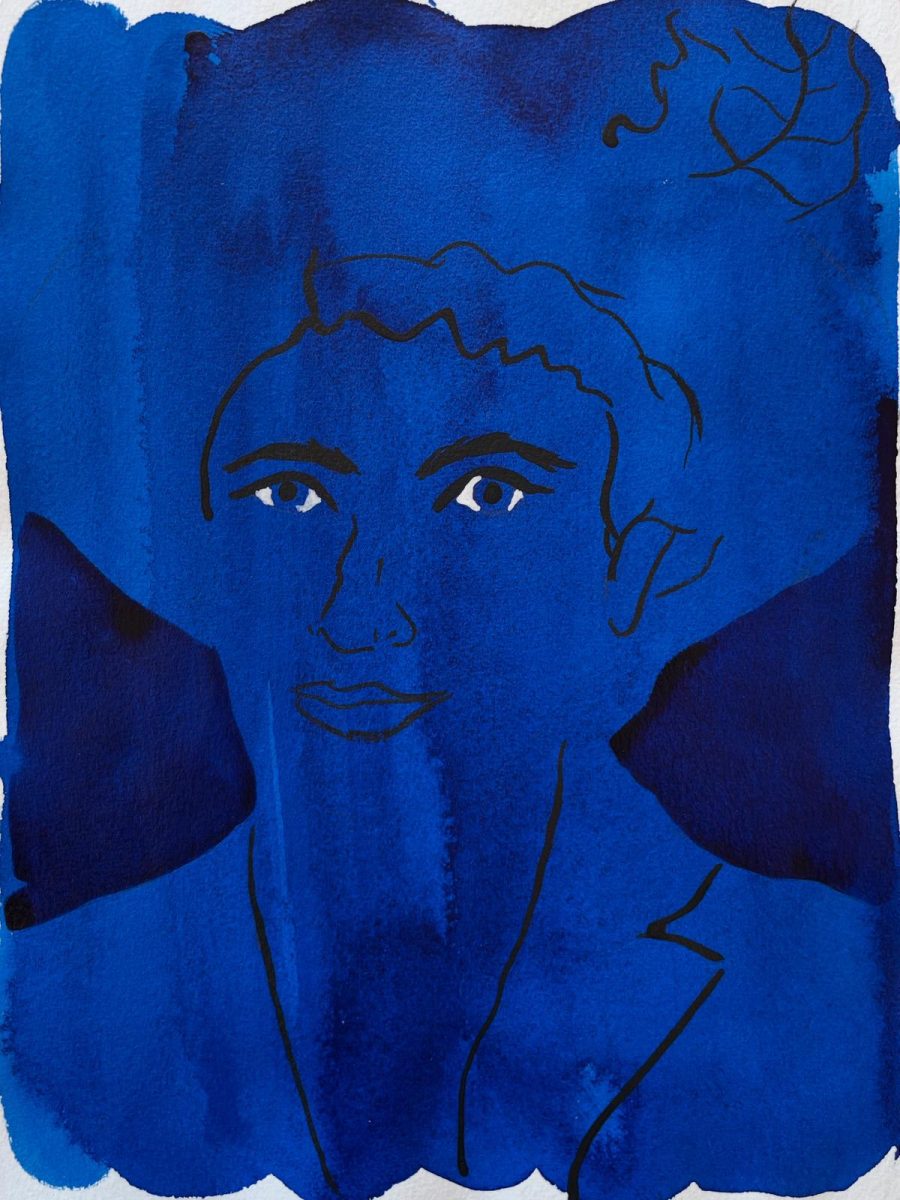
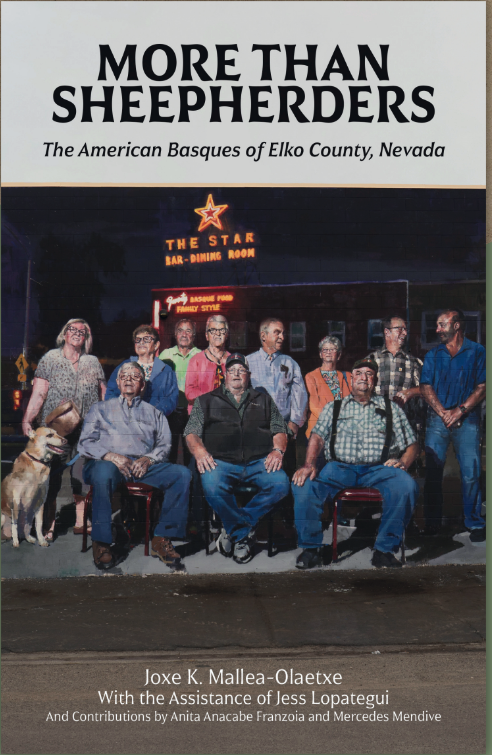

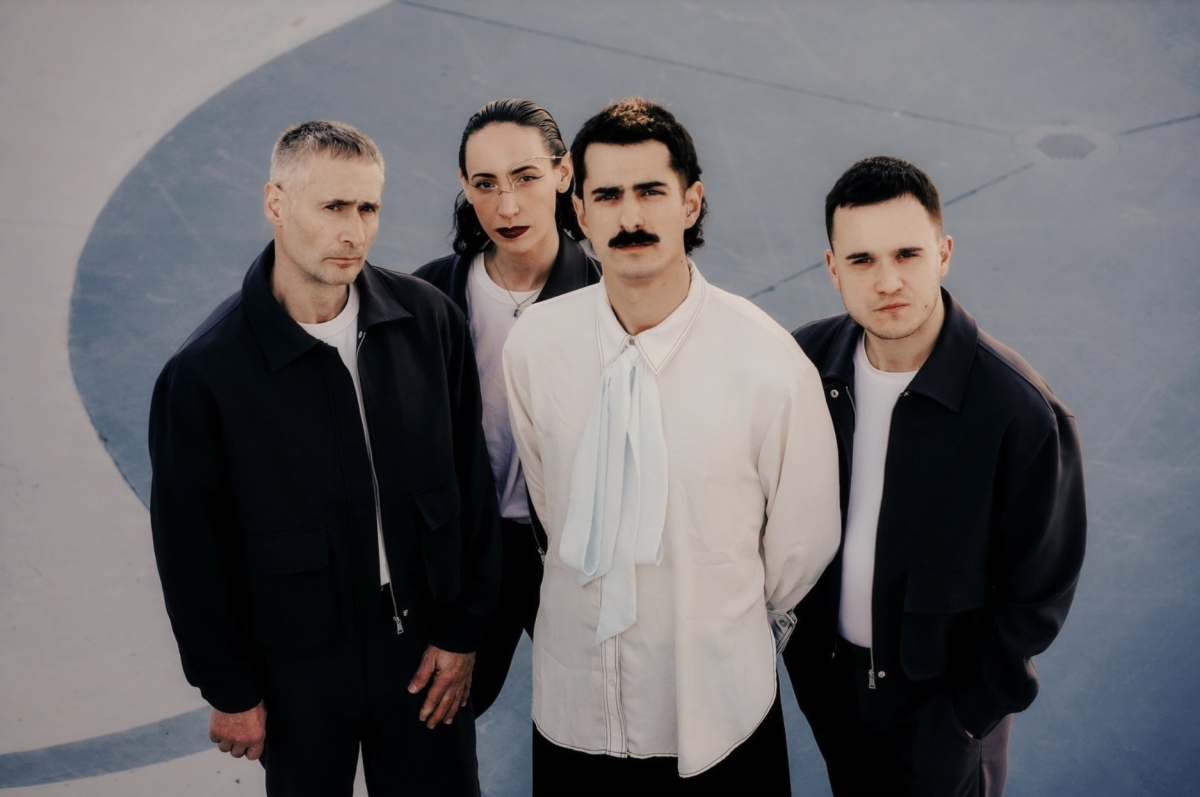
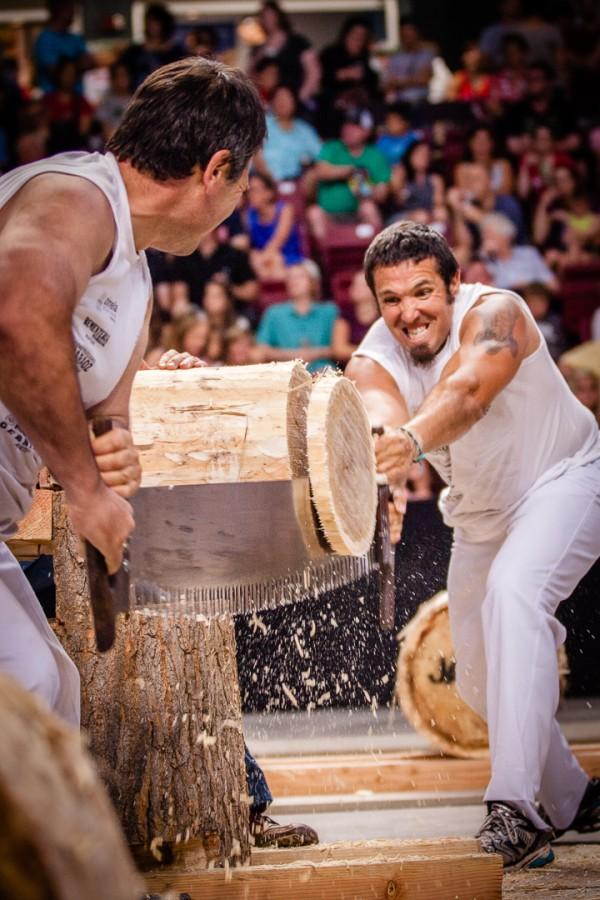
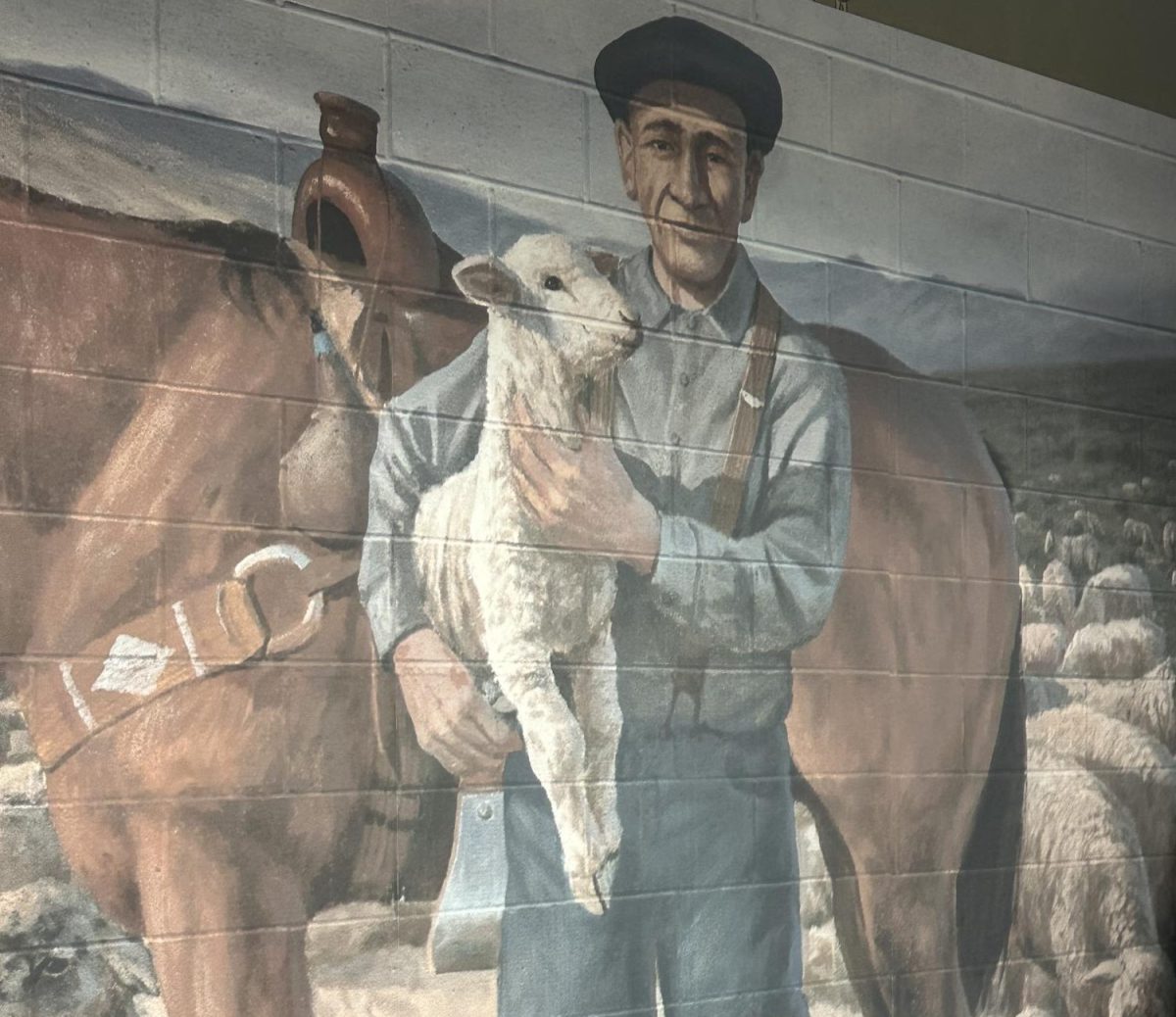
Arantxa • Oct 10, 2023 at 8:16 am
Hi!! I follow your publication from Iruña-Pamplona. I’m very happy to see that exchange programs are in progress. I think it’s the best way to know our culture.
Agurrak
Nancy Zubiri • Oct 11, 2023 at 8:18 pm
We’re glad you enjoyed reading about this exchange.
-The Editors
Yvonne Duhart • Sep 28, 2023 at 12:01 pm
First time reader! Loved every bit of your newsletter. Thank you, Yvonne
Nancy Zubiri • Sep 29, 2023 at 3:41 pm
Eskerrik asko! Thank you very much! To anyone else, please sign up for our email newsletter on our website home page.
-The Editors.